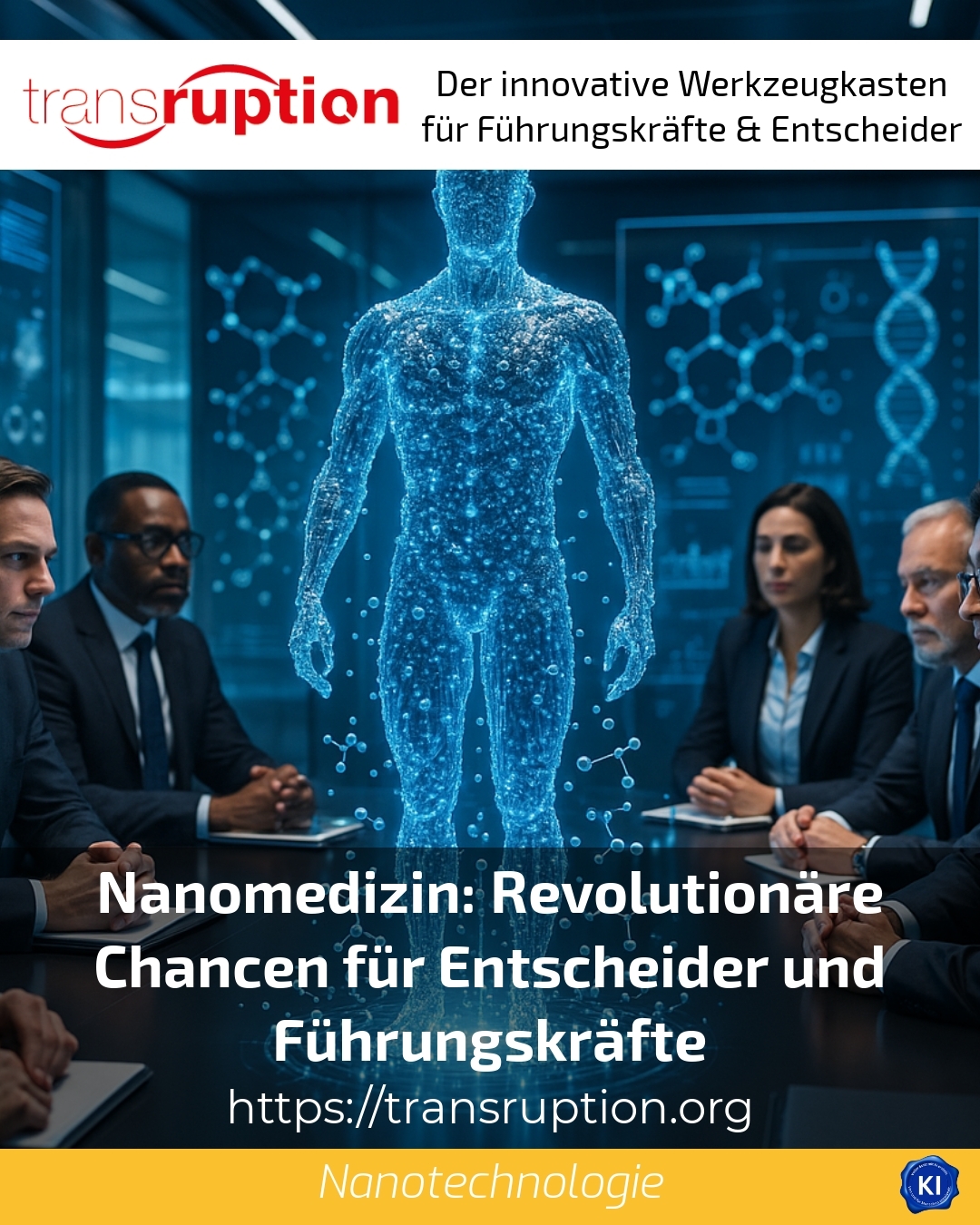Nanomedicine opens up new perspectives for health management
Nanomedicine is changing the way in which medical treatments can be planned and implemented today. For decision-makers and managers, this creates an innovative field full of opportunities and challenges that requires strategic foresight and interdisciplinary thinking.
Nanotechnological research is providing increasingly precise tools that not only tailor therapies better to individual patients, but also enable diagnoses to be made at a molecular level. Such advances help managers to successfully support sustainable and future-orientated healthcare projects. Clients often report how valuable accompanying impulses are when integrating nanomedicine into existing processes.
Challenges and opportunities in project support with nanomedicine
Nanomedicine offers a wide range of potential applications, e.g. in targeted drug delivery or regenerative medicine. One of the great opportunities lies in the development of autonomous nanoparticles that deliver drugs precisely to the centre of the disease. This can minimise side effects and increase therapy efficiency. Decision-makers need to understand this potential and integrate it into their strategic planning in order to successfully manage projects.
Equally important are the possibilities offered by artificial intelligence (AI), which makes the distribution and effect of nanoparticles in the body more predictable. As a result, therapies are becoming increasingly personalised and contribute to greater patient safety. Transruption coaching supports managers in methodically understanding such complex technologies and assisting with their implementation.
Examples of practical applications from nanomedicine
BEST PRACTICE at company XYZ (name changed due to NDA contract)
In a current project, a novel system for the targeted delivery of drugs to tumour cells has been developed. Nanoparticles equipped with special ligands precisely recognise cancer cells and release the drug directly into their interior. This significantly reduced undesirable side effects and noticeably improved patient satisfaction. The project management benefited from systematic support that made the process transparent and controllable.
BEST PRACTICE at ABC (name changed due to NDA contract)
An interdisciplinary team successfully used AI models to predict the spread of nanoparticles in diseased tissue. These models helped to make therapy staff planning more efficient and promoted communication between research and the clinic. The managers reported that the interface work in particular played a key role in the success of the project.
BEST PRACTICE at DEF (name changed due to NDA contract)
In the field of regenerative medicine, an innovative nanomaterial was developed that accelerates cell regeneration. With the help of external impulses and accompanying coaching, managers were able to organise the integration of this material into clinical processes. This led to a successful transfer of knowledge and accelerated authorisation of the product.
Nanomedicine as a strategic factor for managers
At management level, the use of nanomedicine requires careful management of innovations. Decision-makers should not only understand the opportunities of these technologies technically, but also implement them organisationally. This includes a clear project structure, the involvement of interdisciplinary teams and openness to new solutions.
Transformational coaching can help to constructively support the process of change and provide decisive impetus. Many managers experience coaching as a helpful companion for organising complex interrelationships and translating them into practice in a targeted manner. In this way, nanomedicine projects can be better managed, acceptance increased and innovation potential utilised.
In addition to technological development, it is equally important to consider ethical and regulatory aspects at an early stage. Managers often report how valuable strategic guidance is when navigating these issues in order to minimise risks and achieve sustainable success.
My analysis
Nanomedicine opens up a wide range of opportunities for the healthcare sector and is a strategically relevant topic for managers. The precise effect on a molecular level and the integration of AI offer new ways of treatment and diagnostics. For decision-makers, it is essential to keep an eye on the management of change processes in addition to the technical aspects.
Transruption coaching can offer valuable support here in order to safely accompany projects in the nanomedicine sector and provide impetus for successful implementation. This makes it possible to effectively integrate innovative technologies into established structures and develop them responsibly.
Further links from the text above:
[1] Applications in medical nanotechnology 2025
[2] Carl Zeiss Foundation funds joint nanomedicine project
[4] Nanotechnology: progress for medicine and therapy
[5] Nanotechnology in medicine: application & advantages
For more information and if you have any questions, please contact Contact us or read more blog posts on the topic TRANSRUPTION here.















